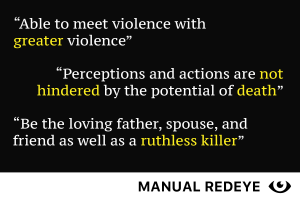OPINION: The problem with Black Friday
December 3, 2020
Black Friday — the time of the year when people fill the stores to buy all the things they need and don’t need for the sake of spending money. It’s the epitome of “shop ‘til you drop” culture, and is a festering spot for infection during a pandemic. I will admit, I say this as I type on the keyboard I got for 30% off from Best Buy, and like everyone else, I love a good deal. But that doesn’t take away from the point that all Black Friday and Cyber Monday do is highlight America’s obsession with material items.
In 2019, 189.6 million Americans shopped during the Thanksgiving weekend through Cyber Monday. Black Friday is notorious for garnering huge amounts of economic activity, and the vast majority of big retailers take advantage of the day to sell off many products. The importance of Black Friday to retailers is major as it can often determine investors’ decisions in retail stocks. It’s also an important holiday for people too, some of which prepare weeks in advance for Black Friday to get the best deals. At face value, it all seems like a win-win situation. Businesses get to free up storage, while consumers get to fill their storage.
And who could resist buying something that is usually a couple of hundred dollars for half off? If you’re planning on buying an item in the near future, you might as well buy it while it’s cheap. But, the problem is people don’t usually do that on Black Friday. There’s not really a “plan” outside of walking into the store, and then grabbing anything with an “On Sale” sticker on it. With lots of people during big deals come lots of products being bought, which inevitably leads to lots of waste products in a short period of time.
Along with that, all the chaos that happens during Black Friday can affect people’s rational thinking to not function properly, and they start buying things they think they might need later, so they get it now. Then later comes and they never get around to actually using the item that would’ve saved them money had they just not bought it in the first place. So, you got all this new stuff without any purpose for them, what do you do then? You either give it away to someone else or take the easier route of throwing it away.
Not only does Black Friday damage the environment by promoting mass consumerism, but it also causes spikes in air pollution because of all the deliveries that must be made. The carbon emissions are worsened when so many people at once also want express shipping and more people are shopping online because of COVID. It also doesn’t help that online shopping further encourages impulsive buying because of the convenience it provides by allowing consumers to add something to their cart with a click of a button.
The surplus amounts of packaging that is used to deliver the items to their designated doorsteps add on even more waste to the landfills. Rarely do some of the most common packaging materials nor do returned items get properly recycled.
It’s totally normal to want to fill your shopping cart when you go shopping during Thanksgiving weekend, though. All the discount signs can trick your brain into thinking you’re saving money so you buy more. And the more you buy, the more you trigger the neurotransmitters in your brain to give you a nice burst of dopamine. So, you keep on buying until you are finally satisfied with the things you’ve gotten on sale.
Black Friday has a long history in the US and the buyers increase each year, so the most we can do on an individual level is make sure we consider necessity over mindlessly browsing around for good deals to help reduce the amount of unnecessary waste we produce during Black Friday, and the following Cyber Monday.








